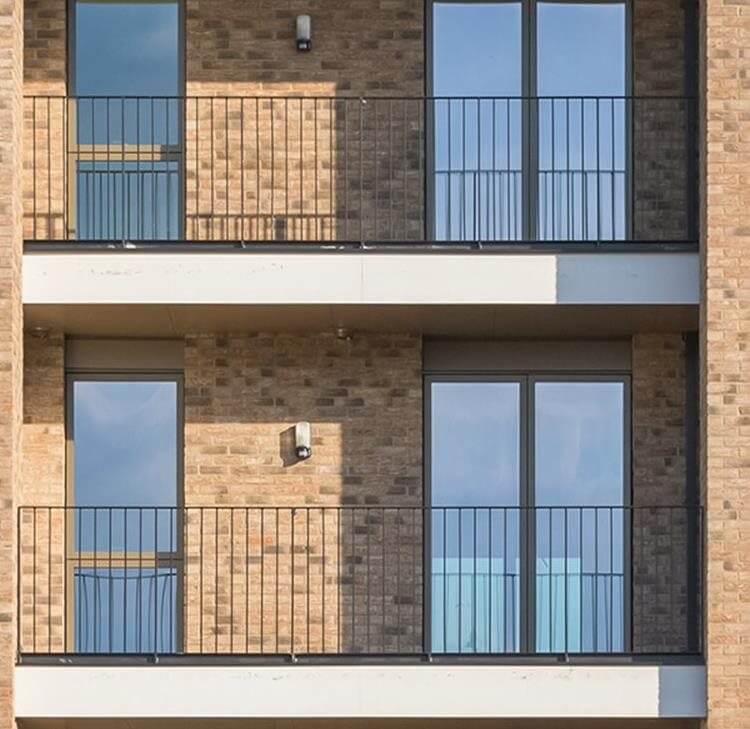The Office of the Independent Adjudicator (OIA) has published revised guidance for higher education (HE) providers delivering learning opportunities in collaboration with others.
A revised OIA Framework
In February 2024 the OIA published a revised version of their 'Good Practice Framework: Delivering learning opportunities with others' following the OIA’s prior consultation exercise.
These new arrangements offer numerous benefits to providers and students alike (e.g. broadening offers to students, more diverse learning experiences, and achieving economies of scale, particularly in the case of highly specialist modules with high delivery costs).
Is the revised OIA Framework mandatory?
The framework remains a guidance document to all providers who deliver HE to students in England and Wales, in collaboration with third parties. However, given that the Office for Students (OfS) expects registered English HE providers to comply with consumer protection law and to subscribe to the OIA student complaints handling scheme, we would advise OfS registered providers to treat the revised framework like a mandatory regulation.
We recommend OfS registered providers use this opportunity to review whether their procedures, templates and existing partnerships remain compliant with the framework. All other providers of HE would also benefit from implementing the framework as far as possible to ensure the best possible experience for their students.
What’s the scope of the OIA Framework?
The framework applies to the delivery of HE by several providers, which covers a large range of potential arrangements (which we shall refer to as ‘partnerships’ below), including:
- Transnational education.
- Validation and subcontracting or franchise arrangements between national and international partners.
- Joint or dual degree programmes.
- Student exchange programmes.
- Study abroad programmes.
- Apprenticeships.
The purpose of the OIA Framework
The framework covers key considerations when setting up, implementing and winding down partnerships. It emphasises the overarching principles of clarity, timeliness, informal resolution, advice and guidance/support which the HE provider should apply to their students at all times.
It is important for providers to be clear about who is responsible for different elements of collaborative provision, and how student matters should be handled when more than one provider is involved.
Who to involve?
Teams dealing with due diligence on partner organisations, entry into and implementation of legal agreements and with student complaints should familiarise themselves with the framework and review whether their practices, internal policies, templates and existing agreements comply with it.
Setting up partnerships
Due diligence
During the process of setting up a partnership arrangement, a ‘home’ provider should review a ‘partner’ provider’s complaints and appeals procedures as part of its academic due diligence and establish whether the other provider is a member of the OIA student complaints scheme. Like most due diligence undertakings, these findings should be refreshed periodically during the course of the partnership.
Pre-agreement
Before agreeing to any partnership, each provider should:
- Make sure that their expectations of students and their principles and approaches to interacting with students are compatible with those of the potential partner institution.
- Become sufficiently familiar with the other provider’s internal policies and procedures to signpost students to them as required and consider how this knowledge can be embedded in its own processes.
Contractual matters
Partnering institutions should formally agree in their collaboration agreement on how, and by whom, student matters will be handled where the matter concerns both providers. When deciding how to share out these responsibilities, both providers should consider:
- Which provider is best placed to gather relevant information.
- When, and how, information can be shared between providers about student matters.
- Where authority to make decisions and offer remedies rests.
- The regulatory contexts which may prevent a provider from delegating responsibility for certain decisions.
Providers should also agree a system for sharing learning from complaints, appeals and other internal processes. They may consider offering joint training to staff across both providers.
Our recommendations
- Bring these matters to the attention of all the teams involved in the due diligence process and contract negotiations at an early stage and document in sufficient detail within the relevant collaboration agreement.
- Review whether your template collaboration agreements satisfy the standards of the framework and if not, update them now.
- Establish whether any of your existing collaboration agreements satisfy the standards of the framework. If not, consider amending them (directly or via amendments to their underlying policies).
- Start discussing with your partners any amendments to be introduced as part of any contract extension/renewal or re-validation procedures.
During arrangements
Clarity
It is important that students understand what to expect from their education providers, and where they can go if they have a complaint or appeal. The OIA’s guidance says that students should be clearly signposted to the relevant provider’s internal procedures – this may be the home provider or the partner provider, depending on the nature of the complaint or appeal. It is not good practice to place the burden on students to identify the correct person or team to contact.
Timeliness
Where internal procedures need to be considered by both the home and the partner provider (or where there is uncertainty around responsibility for considering a particular matter), this can result in processes taking longer than usual. Providers should endeavour to stick to their published timeframes and keep the student informed where a process may take longer. Students should not be expected to duplicate or repeat any part of an internal process because it is being considered by both providers.
Resolution
Students need to know what to do once internal procedures have been exhausted. This can differ depending on whether the home provider and the partner provider are members of the OIA scheme. Most providers in England and Wales are members of the OIA scheme, but they may partner with education providers (for example, overseas institutions) that are not members.
OIA complaints
The OIA can only look at complaints about providers that are members of their scheme. Therefore, if a student’s complaint or appeal has been dealt with under a partner provider’s internal procedures, they may not have further recourse to the OIA. Providers that are not a member of the OIA scheme should not issue Completion of Procedures letters.
Mixed matters
Often, a complaint or appeal may concern issues with the home and the partner providers. Where the home provider is a member of the OIA scheme, the student should be made aware of their right to complain to the OIA. However, they should also be made aware that the OIA might not be able to look at the elements concerning the partner provider.
Our recommendations
- Review whether any existing collaboration agreements satisfy the standards of the framework and if not, consider amending them (directly or via amendments to their underlying policies).
- Start discussing with your partners amendments to be introduced as part of any contract extension/renewal or re-validation procedures.
- Review your student policies and procedures for communicating with students to ensure compliance with the framework.
When partnerships change or end
Student experience
Partnerships may change in various ways throughout their life cycle, or they may come to an end. It’s important for providers to consider the student experience during such transitions, and to ensure that their learning experience, and their ability to engage with any necessary complaints or appeals process, is not negatively affected by the change.
Winding down
The framework suggests that mechanisms to operate complaints, appeals and other internal processes should continue to exist for a period after the partnership has substantively ended. This ensures that students with ongoing complaints are not affected and allows students to raise concerns about incidents that occurred before the partnership ended.
Particular consideration should be given to students undergoing fitness to study or fitness to practice investigations – where possible, these matters should be expedited so that these students are not unfairly disadvantaged by an incomplete investigation.
Records
Providers should also make arrangements for the retention of relevant student records, so that matters can continue to be investigated for a period following the end of a partnership. Legal advice should be taken on the data protection implications of any data retention decisions.
Unexpected closure
Where a provider closes unexpectedly, it is reasonable to expect the partner provider to take responsibility for responding to the concerns of students who were studying under a partnership arrangement.
Our recommendations
- Review your Student Protection Plan, underlying policies and processes to ensure compliance with the framework. Any changes to the Student Protection Plan need to be approved by the OfS.
- Bear in mind that terminating or amending partnerships significantly can also constitute a reportable event which may need to be brought to the attention of the OfS.
- Consider whether any partnerships that have ended recently or are about to terminate can be wound down in accordance with the above principles.
If you are considering a new partnership arrangement or reviewing existing arrangements, we can provide holistic support in setting up and operating learning opportunities in collaboration with others.
Contact

Nathalie Jacoby-Danesh
Partner
nathalie.jacoby-danesh@brownejacobson.com
+44 (0)330 045 2833
You may be interested in...
Legal Update
Autumn Budget 2025 sector predictions: Education
Legal Update
How shared technology transfer offices can help universities commercialise research
Press Release
Post-16 Education and Skills White Paper: Comment from higher education lawyer
Legal Update
Key lessons for higher education from local authority mergers
Legal Update
How the Academies Programme could transform higher education
Legal Update
How the Academies Programme evolved: A blueprint for higher education reform?
Legal Update
What universities can learn from the Academies Programme
Legal Update
The Academies Programme and higher education: Key takeaways for university leaders
Legal Update - Be Connected (higher education)
Be Connected, higher education: Spring 2025
Published Article
The pressure on western universities to divest in fossil fuels: Navigating legal complexities and environmental responsibilities
Legal Update
Updated guidance for collaborative learning delivery in higher education
Legal Update
Climate change: what action should we take?
Legal Update
Installing EV charge points on university campuses
Guide
Education sector contracts – top 10 tips on how to get it right
Guide
Terminating student lettings: a quick guide for landlords
Legal Update
Higher education projects – the end is nigh?
Legal Update
Solar panel projects for higher education institutions
Press Release
Law firm picks up record breaking sixth Education Investor Award
Browne Jacobson’s education team has been named as winner of the ‘Legal Advisors to Education Institutions’ category at the Education Investor Awards 2022 for a record sixth time.
Press Release
Thousands take part in virtual careers event to help increase diversity in the legal profession
Over 3000 young people from across the UK and Ireland took part in a virtual legal careers insight event, aimed at making the legal profession more diverse.
Legal Update
be connected newsletter for higher education - May 2022
In this edition we provide you with the latest in legal updates, news and insight from the higher education sector.
Legal Update
Creating a profitable future for your university intellectual property
Press Release
Browne Jacobson’s C-suite exec level coaching team appoints two new education specialists
National law firm Browne Jacobson has grown its team behind its dedicated Space + Time executive coaching programme with the addition of two more qualified coaches who will work with clients in the education sector.
Legal Update
be connected newsletter for higher education - February 2022
In this edition we provide you with the latest in legal updates, news and insight from the higher education sector.
Legal Update
be connected newsletter for higher education - November 2021
In this edition we provide you with the latest in legal updates, news and insight from the higher education sector.
Press Release
Browne Jacobson hosts UK’s largest virtual legal careers event to boost access to careers in law
Published Article
Women in knowledge exchange and spinouts
Legal Update
be connected newsletter for higher education - April 2021
In this edition of our higher education newsletter, we provide you with the latest in legal updates, news and insight from the higher education sector.
Legal Update
be connected newsletter for higher education - January 2021
In this edition we provide you with the latest in legal updates, news and insight from the higher education sector.



















